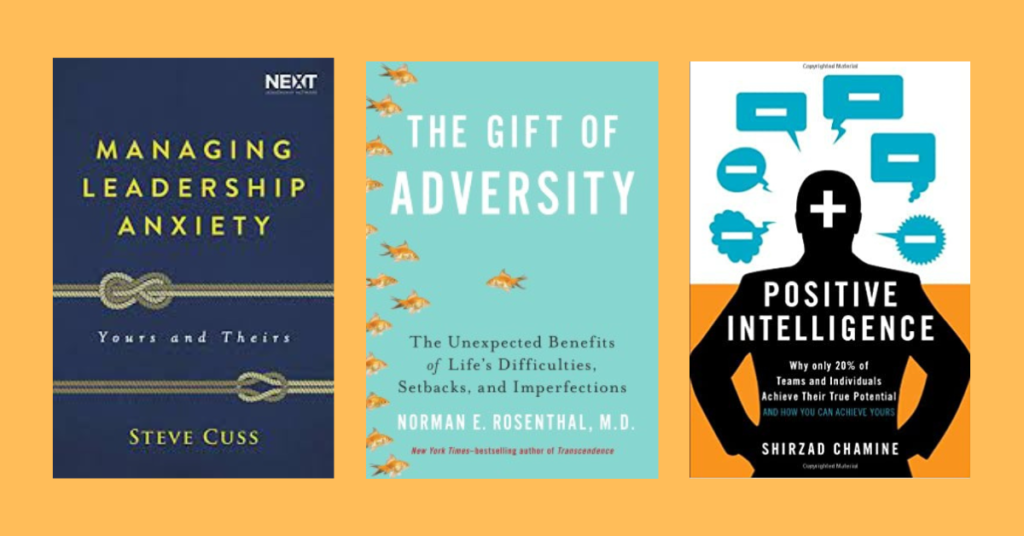The clock is ticking, and soon the calendar year will be over. This time inspires me to pause and take inventory of the essential lessons from this year and how to convert them into opportunities for more growth. Why let crises go to waste when extracting the gifts accelerate our expansion?
Losses and gains are part of life, and navigating those peaks and valleys is part of the human experience. Failures, setbacks, and mistakes are undeniable facts of life. When we focus too much on suffering, we lose perspective.
Hardship is something that causes or entails suffering or deprivation. The most common examples of hardship include Illness or injury, change of employment status, loss of income, or natural disasters. We don’t plan or welcome hardship into our lives, and most of the time, when they show up, we resist, causing us even more suffering. During my career, I lost my job several times. These were very unsettling times, but now that I look back, I was able to rise and grow from all these transitions into better jobs.
“What we resist persists.”
A mistake is an action or misguided judgment, producing an unwanted or unintentional result. Mistakes hurt and cause anxiety. What are your most frequent ways to react to mistakes?
- Need help moving forward?
- Punishing yourself?
- Become reactive with others?
- Minimizing, justifying, blaming others, or seeking sympathy?
- Covering them up?
Our society emphasizes excellence while avoiding failures or mistakes at all costs. In his book “The Gifts of Adversity,” Rosenthal shows that we can live more authentic and meaningful lives when engaging with our failures and defeats.

Each different type of adversity carries its challenges and has the potential to yield its form of wisdom. From this perspective, hardship can become our best teacher when we are willing to do the necessary work to extract the lessons.
Failure is a lack of success or the inability to meet an expectation. Most people struggle to handle failure constructively. I remember when I left my corporate career to become a solopreneur. I learned from failure how to create a solid reputation and the ability to attract clients to make my business sustainable. How do you react to failure?
- Focusing only on what went wrong while dismissing your progress?
- Avoiding people and situations to protecting yourself from failing again?
- Not recognizing your errors and continuing as if nothing has happened?
- Giving up too early on your goals?
Positive Intelligence is a framework created by Shirzad Chamine that helps us to reframe hardship, failure, and mistakes. The premise is that certain modalities of the mind, generally associated with prolonged “negative” emotions, sabotage one’s mental well-being, performance, and relationships. These modalities are “Saboteurs” and are associated with the “Survivor Brain.” Conversely, to identify the gifts from adversity, we need to switch to other modalities of the mind, generally associated with prolonged “positive” emotions that promote one’s wellness, optimal performance, and healthy relationships. These modalities are labeled “Sage” and associated with the “PQ Brain.” The Sage Perspective is that we can find gifts and opportunities in every outcome or circumstance.
According to Shirzad Chamine, there are three potential gifts adversity provides:
- Knowledge: Extracting knowledge from adversity to reap the fruits in the future. For me, in every layoff, I learned to reinvent myself and gained job transition skills that l put to good use beyond my own needs.
- Power: Seeing the problem as “weight” in a gym, against which muscles grow. We can become more resilient by developing five Sage Powers: Explore, Navigate, Empathize, Innovate, and Activate. Practicing PQ reps and applying the Sage powers have helped me overcome negativity rising from my setbacks this year.
- Inspiration: Committing to an inspiring action that you wouldn’t have if this “bad” thing hadn’t happened. That action becomes the gift. Facing many career crossroads inspired me to become a Career Transition Coach, helping hundreds of professionals land better jobs aligned with their aspirations.
In his book “Managing Leadership Anxiety,” Steve Cuss addresses that a lifetime of Leadership involves a lifetime of mistakes.
“Leaders learn from evaluated experience.”
We all can increase our capacity to discover the silver lining in our shortcomings without guilt or shame.
An article from the Center for Creative Leadership describes four lessons learned from hardship and adversity.
- Perspective: Hardship makes us aware of our limitations and vulnerability. This expanded self-awareness helps us gain a renewed perception leading to an expanded way of thinking. Early in the year, I lost my oldest brother. His sudden death hit me very hard and was a wake-up call to realign with my values. As soon as I could, I traveled to reunite with my parents and honor them while they were still around.
- Compassion: Hardship teaches us to be humbler with others when we become more aware of the hardships of others. After my brother passed on, I was able to better relate to those who have experienced the death of a beloved one.
- Expectations: Hardship teaches us there are so many things outside our control and to recognize when we must accept what it is. Losing my brother was an unexpected event totally outside of my control. I found resignation converting his memory into a legacy of love in everything I do.
- Flexibility: Hardship teaches us to shift and change to adapt to face future failures. Being open to learning and agile is one of the most valuable abilities to succeed in life and work. This year brought me many opportunities to change my approach to adapt to an increased workload and shift my priorities when I became a grandmother. Then, I reprioritized to support my daughter and rejoice in the experience of being a grandmother for the first time.
Even when life is hard, there are meanings to be found, riches to be harvested, and gifts that can last a lifetime. Year-end is an appropriate time to stop and ponder to pick up the gems in this year’s ups and downs, so we initiate the new year with a renewed perspective.
